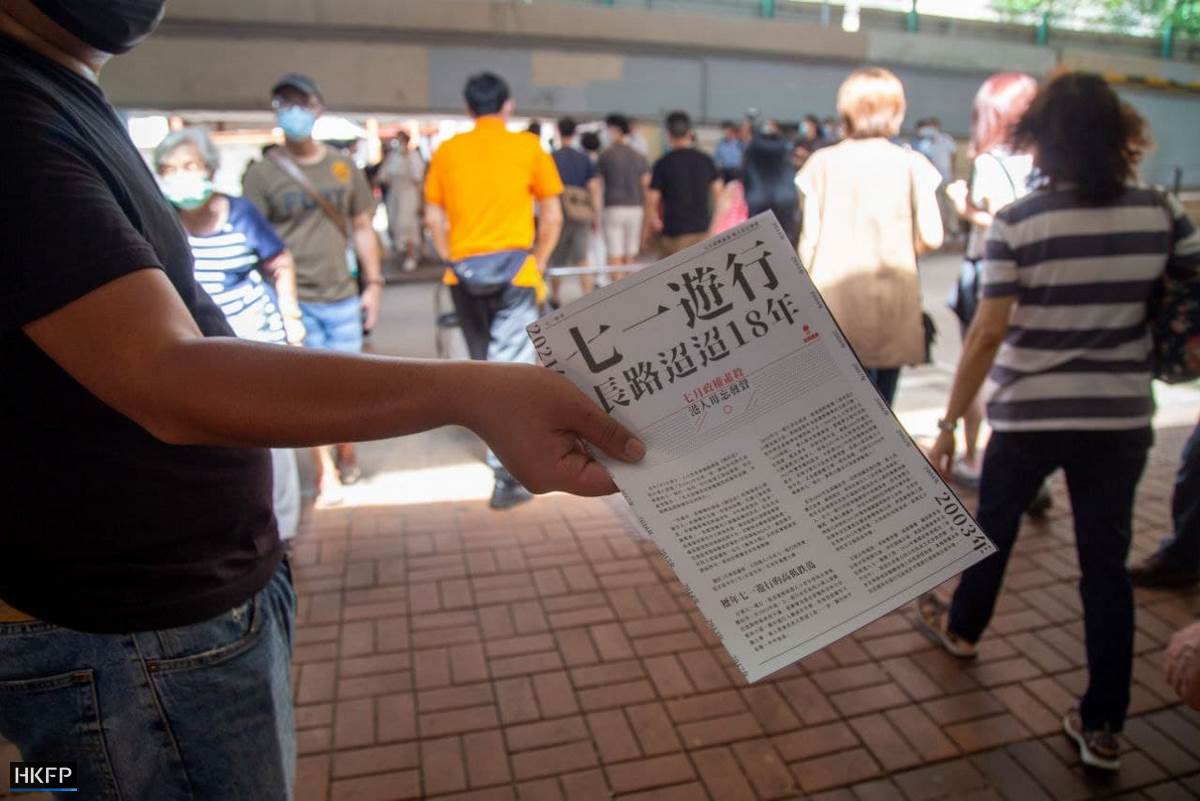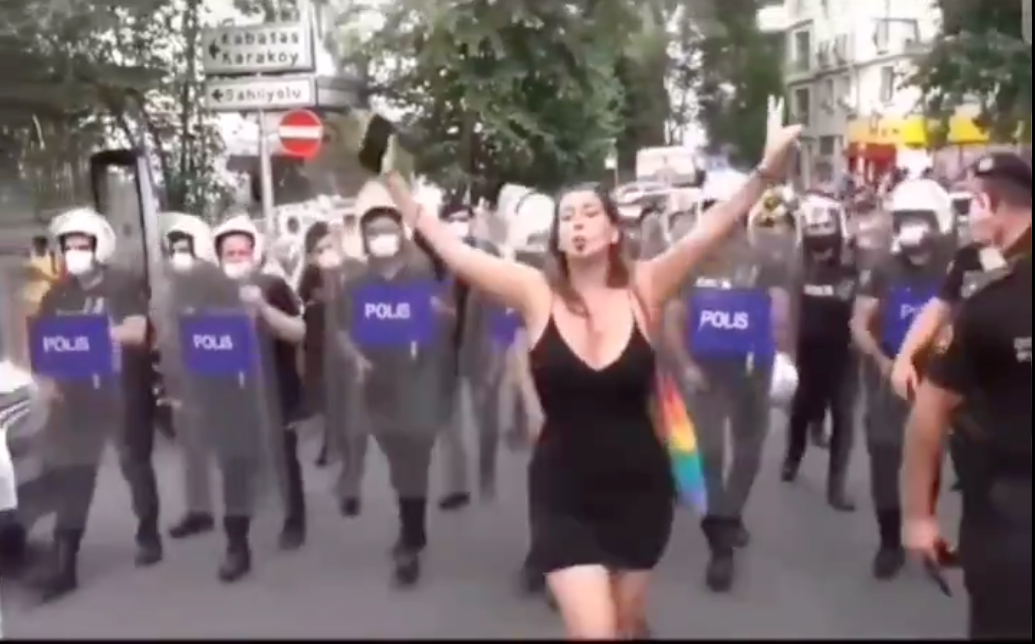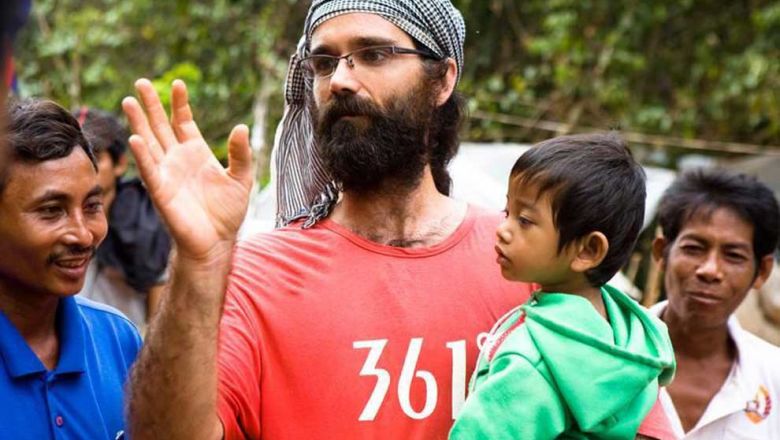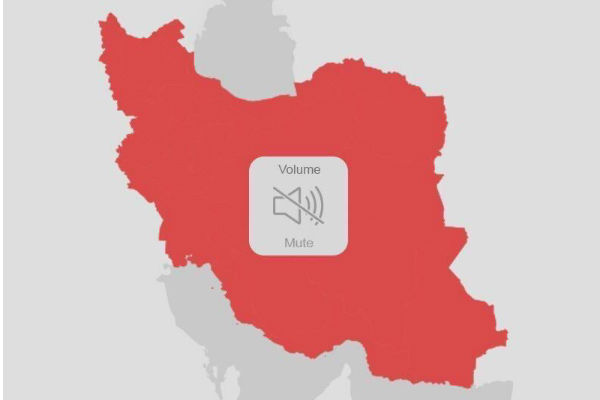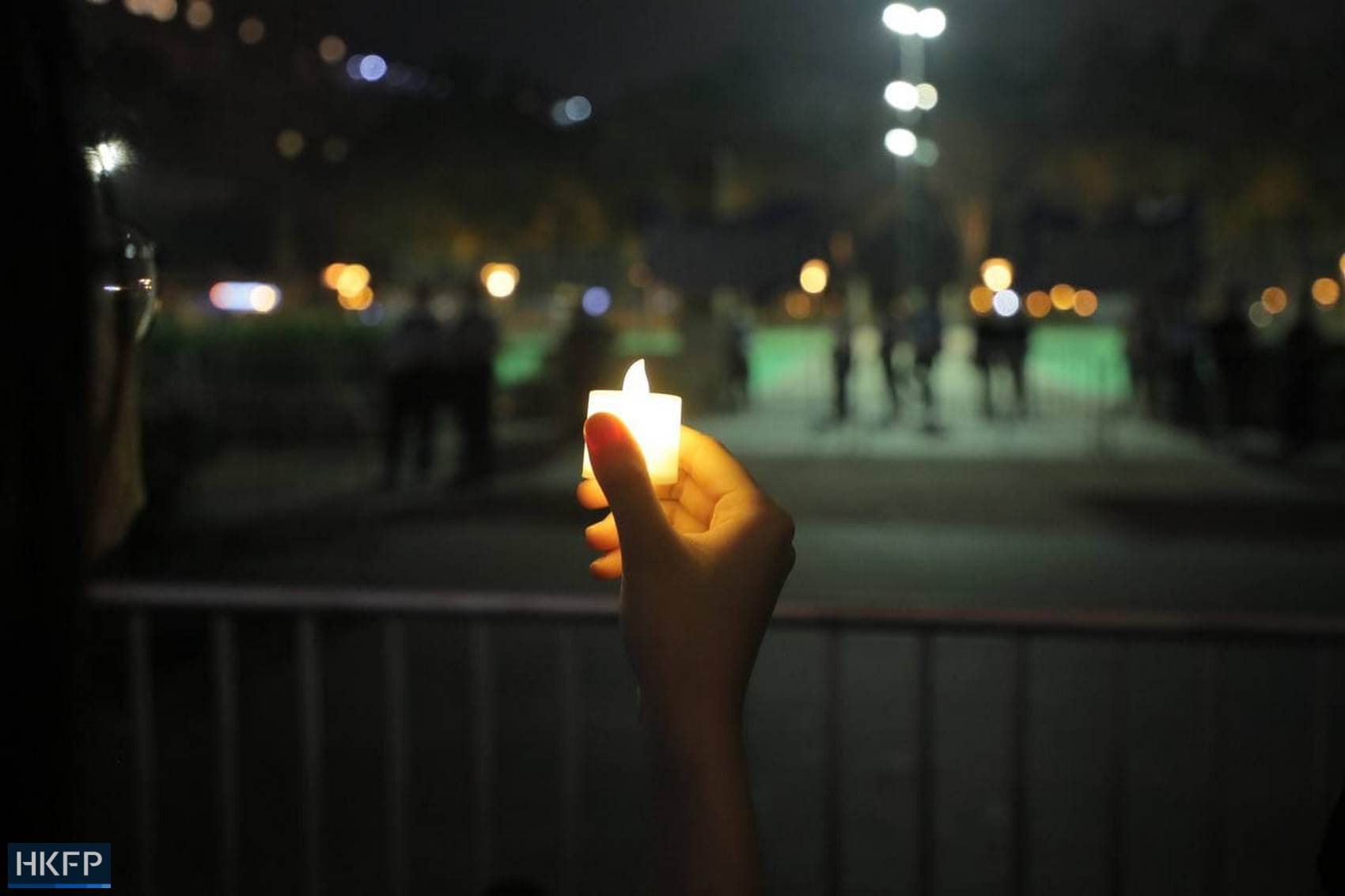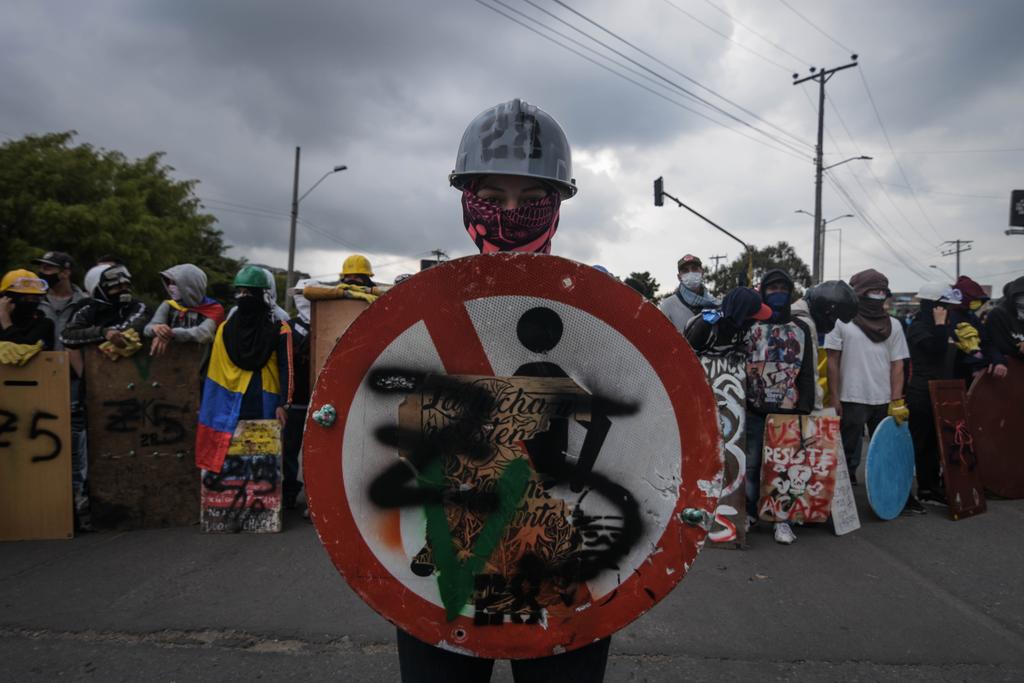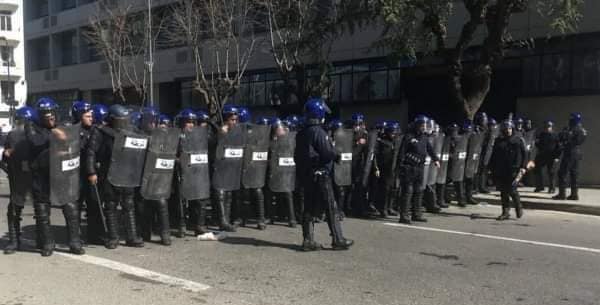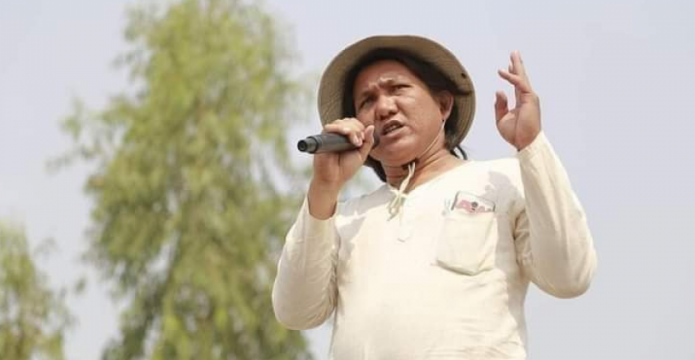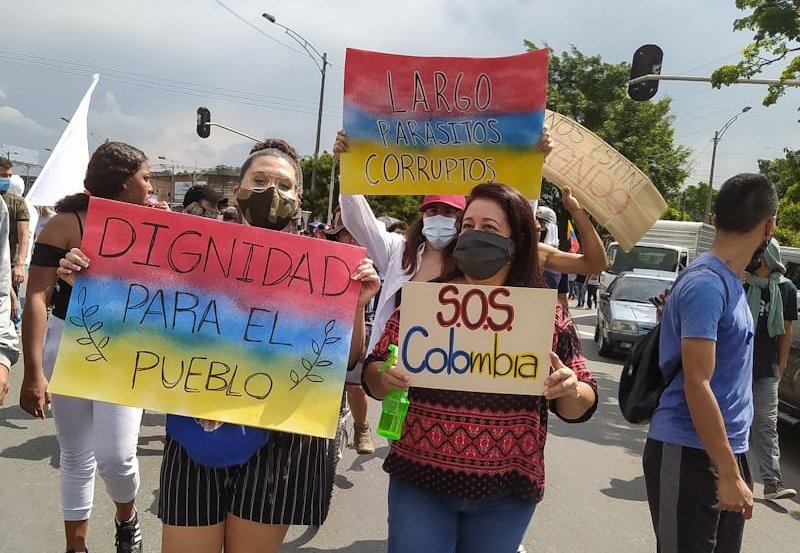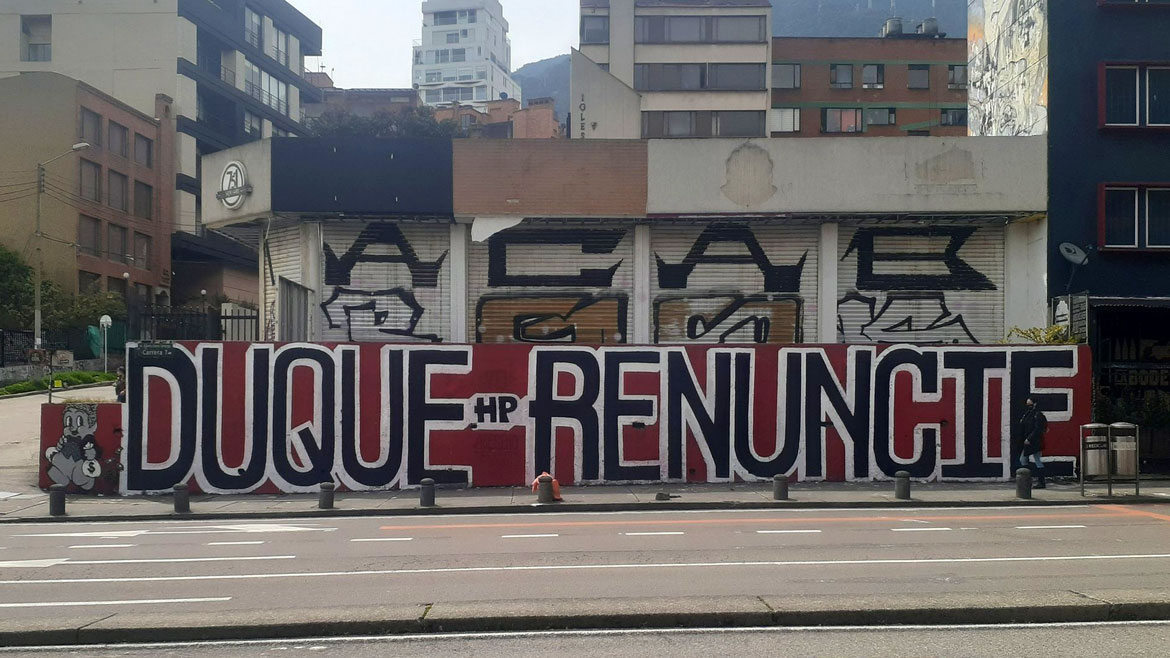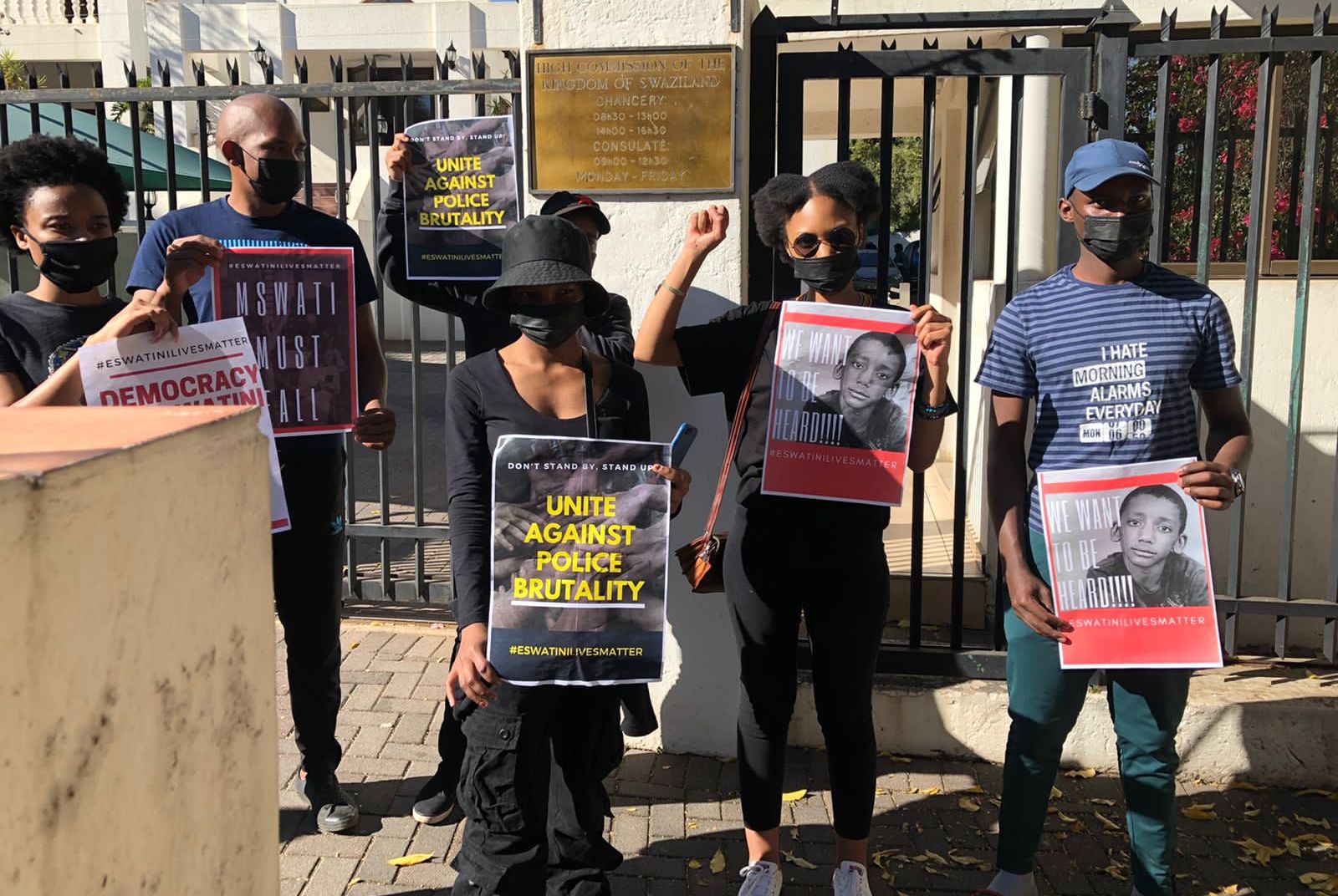
Uprising and repression in Eswatini
The government of Eswatini, Africa’s last absolute monarchy, has launched what Amnesty International calls a “ruthless crackdown” in response to pro-democracy protests, with dozens killed and many others tortured, detained or abducted. Protests broke out last month, following the mysterious death of a 25-year-old law student, Thabani Nkomonye, in May, allegedly at the hands of the police. In late June, these protests grew into daily marches in several cities and towns around the kingdom. While the demonstrations were mostly peaceful, there were instances in which businesses linked to the monarchy were looted and torched. The protests have waned since the wave of repression was unleashed, but the opposition People’s United Democratic Movement (PUDEMO) pledges to carry on the struggle. (Photo: Swazi students from University of Pretoria protest at Eswatini embassy. Via Twitter)




